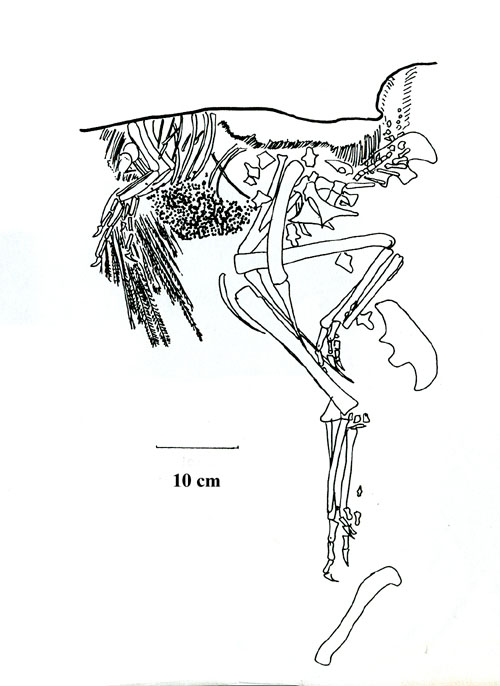
Species: zoui JI, CURRIE, NORELL & SHU-AN, 1998
Etymology: In honor of Zou Jiahua, vice-premier of China and an avid supporter
of the scientific work in Liaoning.
Holotype: National Geological Museum of China, NGMC 97-4-A
Locality: Sihetun, Shangyuan, area near Beipiao City, Liaoning Province, China.
Horizon: Horizon 1, Lower part of the Yixian Formation (Jiulongsong Member, Chaomidianzi Formation), Jehol Group.
Biostratigraphy: Psittacosaurus Fauna, Confuciusornis Avifauna.
Age: Valanginian Stage, Upper Neocomian Subepoch, Early Early Cretaceous Epoch, Early Cretaceous.
Material: Fragmentary skull and fragmentary skeleton with feather impressions and gastraliths.
Note: Has furcula.

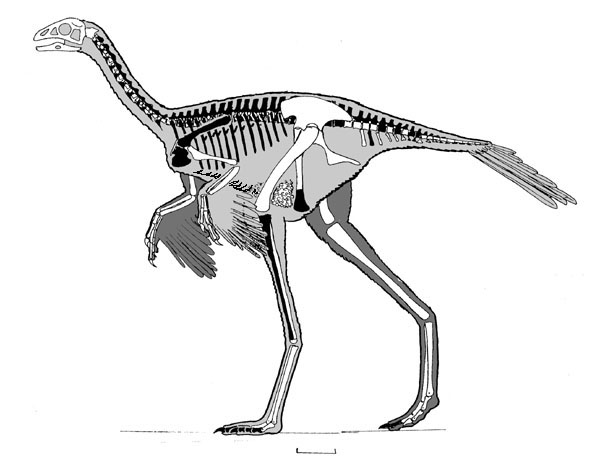
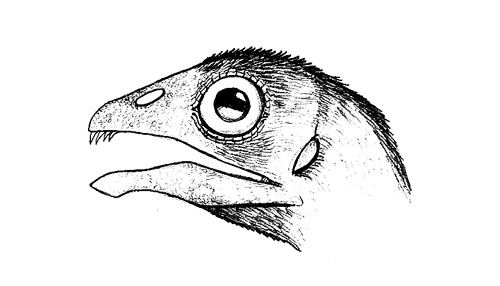
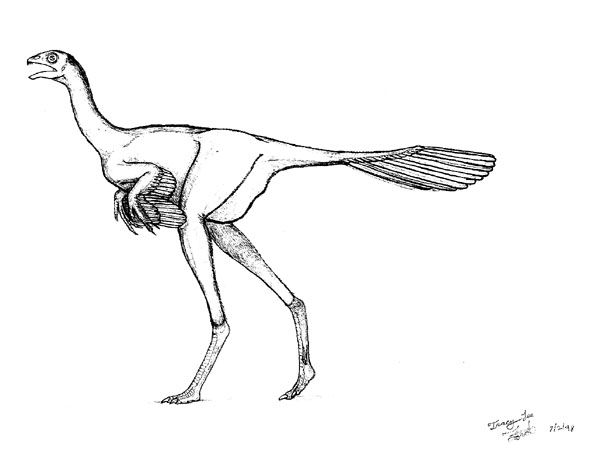
Paratype:
NGMC 97-9-A: Fragmentary skull and fragmentary skeleton with feather impressions.
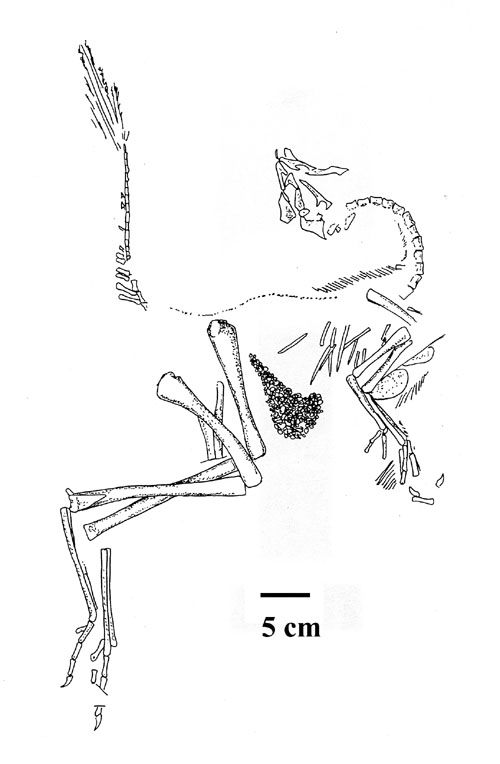
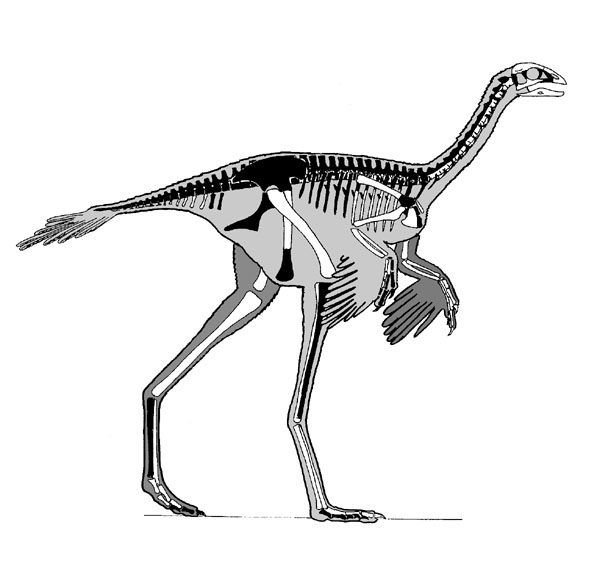
NESBITT, TURNER, SPAULDING, CONRAD & NORELL, 2009
BM 1001, IVPP V12430: Fragmentary specimens.
Note: Has furculae.
_____________________________________________________________________________________
Species: dongi ZHOU & WANG, 2000
Etymology: In honor of Dong Zhi-Ming, a distinguished Chinese dinosaur expert.
Holotype: IVPP V 12344
Locality: Zhangjiagou, Sihetun, Beipiao City, Liaoning Province, northeast China.
Horizon: Layer 6 Horizon 1, Lower part of the Yixian Formation, Jehol Group.
Biostratigraphy: Psittacosaurus Fauna, Confuciusornis Avifauna.
Age: Valanginian Stage, Upper Neocomian Subepoch, Early Early Cretaceous Epoch, Early Cretaceous.
Material: An incomplete individual with nearly complete forelimbs, hindlimbs
and pelvis. Feather impression on the underside of the arms and integument
impressions on the body.
Note: Several gastroliths were found in the body cavity.
